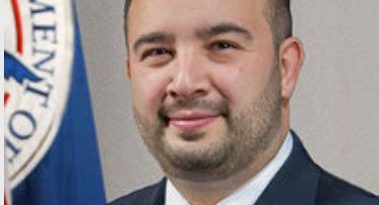Diplomacy Students Attend Annual UNA Members’ Day
By Vincent Maresca
Staff Writer
On February 19, the United Nations Association of the United States of America (UNA-USA) hosted its annual Member’s Day at the United Nations Headquarters, in New York, themed “From Road Blocks to Building Blocks: Global Crises and the Role of the UN.”
The day began with a speech from U.N. Under-Secretary-General Cristina Gallach, who announced upcoming U.N. conferences in Geneva and Istanbul to deal with World Humanitarian Day and the refugee crisis. Gallach also highlighted important goals and achievements of the U.N. agenda.
The event featured panels on climate change, the refugee crisis, sustainable development goals, and the role of the Security Council in maintaining peace and security.
The first panel on climate change featured four speakers from civil society groups and the City of New York, who discussed the United States’ priorities on sustainability.
Nilda Mesa from the Mayor’s Office of Sustainability spoke of “subnational initiatives,” namely the city’s eco-friendly policy. Under Mayor Bill de Blasio’s plan, over 70 agencies are cooperating on creating a sustainable city by reducing emissions through a restructuring of the transportation and waste management systems.
The city plans on tackling pollution-related problems, such as a growing asthma epidemic that has affected school attendance.
Austin Schiano spoke about his organization, Give Me 5, a global grassroots movement dedicated to raising awareness of climate change policy. Bill McKibben, also from Give Me 5, compared the Paris COP21 with the preceding conference in Copenhagen, saying that Paris was much more successful because of the grassroots movement.
The panel on the refugee crisis included three speakers: Fabien Dubuet, Doctors Without Borders’ (Medecins Sans Frontieres) representative to the U.N.; Kevin Schumacher of OutRight Action International; and Sana Mustafa, a student from Bard College and a Syrian refugee.
Dubuet spoke about the mission of MSF and of a recent report released on February 18 about the status of hospitals in conflict areas, which painted a grim picture for relief work. Schumacher discussed the human trafficking crisis in conflict zones, specifically highlighting the risk posed to minorities in Syria and Iraq. Finally, Mustafa spoke of the hardships facing refugees, such as slow screening processes and the denial of asylum.
During a panel on the next fifteen years of the U.N., School of Diplomacy junior Gabriela Taveras spoke about her work on campus through Seton Hall’s chapter of UNA-USA. She enthusiastically congratulated Professor Martin Edwards for organizing last year’s Sustainable Development Goals Teach-In on campus.
Taveras briefly summarized the teach-in, saying that a diverse group of people attended the event, including Seton Hall faculty and students, high school teachers and students, and other people from the area. She explained the structure of the event, which included a brief lesson on the SDGs, small-group discussions, and an op-ed writing workshop to call for action on the SDGs.
The final panel was entitled “Security Council Permanent 5: Division and U.N. Drift,” featuring the Jordanian Permanent Representative Dina Kawar and Ambassador Matthew Rycroft of the United Kingdom. The ambassadors discussed the conflicts in Ukraine, Syria, and Afghanistan, and their countries’ cooperation in helping refugees and in ending the Israeli-Palestinian conflict. Rycroft discussed China’s role in pressing North Korea not to pursue nuclear power.
Young people were the majority of the event’s attendees. Social media played a significant role, as almost everyone who had phones or laptops sent messages to the U.S. Congress, thanking them for their support of the U.N. and its causes, or calling for further action.

